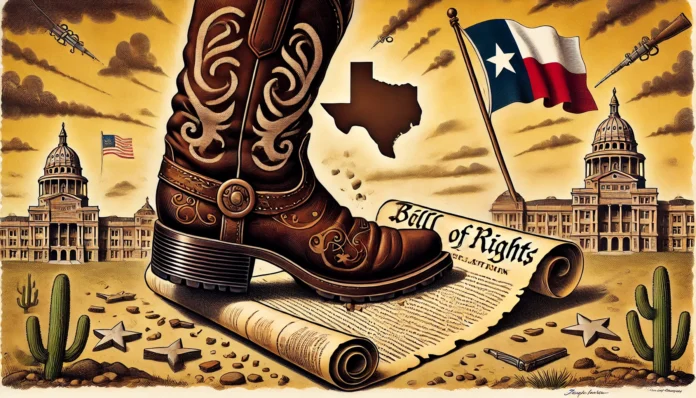In recent years, Texas has become a battleground for the separation of church and state, with a series of legislative and educational initiatives that threaten the secular foundation of public education. For Atheists and religious minorities, these developments are not just abstract policy debates—they represent real risks to religious freedom, educational integrity, and equal treatment under the law.
The Bluebonnet Curriculum: Bible Stories in Public Schools
One of the most significant recent challenges is the approval of the Texas Bluebonnet Curriculum for English Language Arts and Reading (ELAR) by the Texas State Board of Education. This curriculum weaves Christian and biblical stories into lessons for public school students, often at the expense of accuracy and religious neutrality. Religious scholars and concerned parents have raised alarms about the curriculum’s overt Christian bias and factual errors, warning that it undermines both educational standards and the constitutional principle of church-state separation. The Bluebonnet Curriculum is a stark example of how religious ideology can be embedded in public education, marginalizing students from non-Christian backgrounds and eroding trust in the objectivity of public schools.
Expert and Community Perspectives
At a recent NCJW San Antonio symposium, educators and legal experts voiced deep concern about the growing influence of religious doctrine in Texas classrooms. Dr. David Brockman, a religious studies scholar, emphasized that “public schools should be places where all students—regardless of faith—feel equally welcome and respected.” State Rep. James Talarico, a former teacher, has been a vocal critic of these measures, warning that “injecting religion into public education divides communities and undermines our shared civic values.”
Rachel Laser, president and CEO of Americans United for Separation of Church and State, has called the Texas initiatives “a direct assault on the First Amendment.” She notes that “when government promotes one faith over others, it sends a message of exclusion to everyone else.”
‘In God We Trust’ Posters and Religious Chaplains
In 2023, Texas lawmakers passed a law requiring public schools to display donated ‘In God We Trust’ posters in classrooms. While supporters claim this is a patriotic gesture, critics argue that it sends a clear message of religious favoritism, particularly to students who do not subscribe to monotheistic faiths. The same year, another law allowed unlicensed religious chaplains to provide mental health counseling in public schools. Unlike licensed counselors, these chaplains are not required to have mental health credentials, raising concerns about the quality of care and the potential for religious proselytizing in a setting that should be secular and inclusive.
Community Response and Advocacy
Organizations like Texas Freedom Network (TFN) and the Secular Texans (SEAT) have mobilized to challenge these laws. TFN has organized public forums and legal briefings to educate parents and students about their rights, while SEAT has provided resources for reporting violations and connecting affected families with legal support. These groups stress the importance of vigilance and community action in defending secular education.
The Push for Ten Commandments Displays
Looking ahead, Lt. Gov. Dan Patrick has announced plans to push for legislation in 2025 that would require the Ten Commandments to be displayed in every public school classroom. This proposal, if enacted, would represent one of the most explicit endorsements of a particular religious tradition in public education. For Atheists and religious minorities, such a mandate is not just exclusionary—it is a direct challenge to the constitutional promise of religious freedom and government neutrality.
Broader Implications for Atheists and Religious Minorities
These developments are not isolated incidents. They are part of a broader trend of religious encroachment in Texas public schools, from school-sponsored prayers at events to the inclusion of creationist ideas in science curricula. For Atheists and members of minority faiths, the message is clear: public schools are becoming less welcoming, less neutral, and less committed to the principles of secular education.
Dr. Brockman warns that “when the state privileges one faith, it inevitably marginalizes others.” This sentiment is echoed by Rachel Laser, who points out that “the erosion of church-state separation in Texas sets a dangerous precedent for the rest of the country.”
Actionable Steps for Defending Secular Education
- Stay Informed: Follow updates from advocacy groups like Americans United, Texas Freedom Network, and SEAT.
- Engage Locally: Attend school board meetings, write to your representatives, and participate in community forums to voice your concerns.
- Know Your Rights: Review resources from Americans United and ACLU on religious freedom in public schools.
- Support Legal Challenges: Consider donating to or volunteering with organizations that are fighting for church-state separation in the courts.
- Build Coalitions: Connect with interfaith and secular groups to amplify your voice and foster mutual support.
Looking Forward
The ongoing struggle for secular education in Texas is about more than textbooks and classroom posters—it is about the fundamental rights of every student to learn in an environment free from religious coercion. As advocacy groups, educators, and concerned citizens continue to push back, their efforts serve as a reminder that the fight for church-state separation is far from over. By staying informed, engaged, and united, Texans can help ensure that public schools remain places of inclusion, respect, and true educational integrity.

